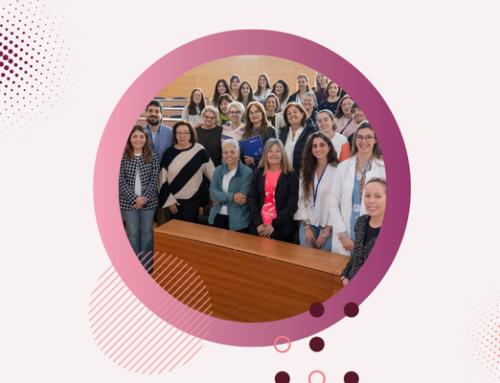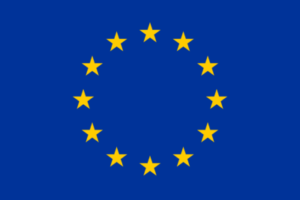This article was authored by Alexandra Olson, Project Officer at the European Health Management Association (EHMA).
“We are, today, at a critical point for decisions to put more concrete effort into reducing both breast cancer incidence and mortality rates.” – MEP Elena Kountoura
On November 20, 2024, the European Health Management Association (EHMA) hosted a policy debate to explore strategies for enhancing breast cancer prevention and improving access to screenings and treatment on European, national, and local levels. The event took place online and featured experts in the fields of policy, medicine, and research, with interventions from MEP Elena Kountoura, MEP and Vice President of the European Parliament Nicolae Ștefănuță, Prof. Dr. Martin Widschwendter, and Dr. Fiorita Poulakaki. The debate gathered breast cancer patients, breast cancer survivors, representatives of patient advocacy organisations, policymakers, and researchers and was moderated by Alexis Strader, Director of Policy and Research at EHMA.
Summary:
The debate underscored the power of collaboration to drive meaningful action in the fight against breast cancer. These actions include:
- Continue to pursue the establishment of universal access to mammography screening programmes and expand these programmes to include women below the age of 45 and over the age of 70.
- Ensure effective budget allocation and utilisation for breast cancer prevention efforts.
- Avoiding cuts to the health budget as much as possible with the upcoming revision of the Multiannual Financial Framework.
- The implementation of population-based breast cancer screening programmes, which have now been implemented in all EU+2 countries except for Bulgaria, Lithuania, and Romania.
- Placing primary prevention measures and improving risk prediction tools high on the agenda, especially since cancer has become the most common cause of mortality in high income countries.
- Improve awareness in schools and workplaces of the harmful effects of alcohol and tobacco and implement widespread awareness campaigns such as ”Breast Health Day”.
- Promote sustainable means of traveling to and from work, such as biking, as a part of prevention efforts.
The role of the European Union in breast cancer prevention efforts
MEP Elena Kountoura (Left, Greece) opened the debate with a call to action, highlighting that Europe was at a ”critical point” for decision-making. She noted that the number one priority for policymaking should be tackling inequalities, ”especially those affecting women from lower economic backgrounds or those living in rural areas” and that ”all women, regardless of their financial situation or where they live must obtain equal access to optimal services for prevention, early detection, and innovative treatments”. She underlined the need to push for the establishment of European and national cancer registries to collect reliable and comparable data, which she emphasised as being invaluable for shaping and implementing future policies that are adapted to the actual needs of citizens.
MEP Kountoura also outlined the role of the EU in breast cancer prevention efforts, highlighting that the European Parliament will continue to pursue the establishment of universal access to widespread mammography screening programmes and access to specialised breast units in all Member States as well as the inclusion of women below the age of 45 and over 70 in screening programmes. ”We expect the European Parliament to be a frontrunner with interventions and resolutions” she concluded, “It is of paramount importance to act faster, to bridge gaps, and build a future in Europe where breast cancer will no longer be a leading cause of death for women”.
”I consider cancer to be my enemy, and the sworn enemy of this Parliament and of the Commission.” – MEP Nicolae Ștefănuță
MEP and Vice President of the European Parliament Nicolae Ștefănuță intervened next, highlighting the importance of adequate budget allocations to breast cancer prevention efforts. He noted that, among the 5 billion euros that were available in the last mandate in the EU4Health programme, 4 billion euros were allocated to Europe’s Beating Cancer Plan, and that every year ”cuts and redeployments of the budget to the health area and the Beating Cancer Plan are frequently made”. He further emphasised that, although the budget that is allocated to Europe’s Beating Cancer Plan is incredibly modest on a European level, some Member States, like Romania, have not managed to use the budget to its full extent in a manner that would effectively improve breast cancer treatment and prevention efforts. In Romania, such efforts are sorely needed, as only 9% of eligible women participated in a breast cancer screening in 2020 compared to the EU average of 60%.
In addition to effective budget utilisation, MEP Ștefănuță highlighted the importance of avoiding cuts to the health budget with the upcoming Multiannual Financial Framework Revision, and the need to dedicate more funding to this area. ”The cost of prevention is much cheaper than the cost of treatment,” he emphasised, ”In times of austerity, value for money is a great argument, and there is no better example than health and education. In what other sector do you get so much out of acting early and cautiously? Let’s try to avoid [breast cancer] altogether by acting early”.
The role of research and civil society organisations
The second half of the policy debate featured interventions from Dr Martin Widschwendter, Professor of Women’s Cancer at University College London and the Founder of the European Translational Oncology Prevention and Screening (EUTOPS) Institute, and Dr. Fiorita Poulakaki, Head of the Breast Surgery Department at the Medical Athens Group and Vice-President of Europa Donna.
Dr Widschwendter began his intervention by noting that, although 10% of breast cancer cases are due to a specific mutation (BRCA ½), 90% of cases are due to other factors, including alcohol and tobacco consumption, lack of physical activity, and other unknown factors. He presented his research on innovative methods that can be used to predict the risk of developing breast cancer[1], and preventive measures that be implemented to reduce this risk[2]. He emphasised that, regarding breast cancer prevention, four important aspects are effectively identifying women at risk, implementing preventive measures, monitoring the efficacy of the primary preventive measures, and the participatory ‘design and engagement’ phase.
Dr Fiorita Poulakaki continued with her intervention, and introduced Europa Donna, the European Breast Cancer Coalition, and its aim of advocating for evidence-based best practice breast services in Europe. She presented the overall context of cancer-related risk factors in the EU, noting exposure to air pollution as a major risk factor in Italy and smoking and alcohol consumption as major risk factors in France. She emphasised that major risk factors for cancer are consistently more prevalent among individuals with lower income and education levels and outlined a few good practice examples that could be implemented to ameliorate these inequalities. These practices included improving awareness in schools and the workplace, implementing widespread awareness campaigns such as Breast Health Day, organised by Europa Donna on the 15th of October each year, and implementing easy to understand front-of-pack labelling for food products to enhance understanding of what ingredients will be consumed.
Dr Poulakaki concluded by highlighting the importance of population-based breast cancer screening programmes, which have now been implemented in all EU+2 countries except for Bulgaria, Lithuania, and Romania. She also emphasised the need for enhancing access to screening programmes, which could be done, for example, through the establishment and use of mobile vaccination and screening units.
”Screening is important, but it is not prevention.” – Dr Fiorita Poulakaki
The policy debate concluded with a question-and-answer session with Dr. Widschwendter and Dr. Poulakaki, which sought to further explore breast cancer prevention policy gaps on EU, national, and local levels. When asked what policy gaps on national and EU levels Dr. Widschwendter had noticed, he emphasised the importance of placing primary prevention measures and improving risk prediction tools high on the agenda, especially since cancer has become the most common cause of mortality in high income countries.
Alexis Strader continued the Q&A session by asking Dr Poulakaki about national level good practices to address breast cancer prevention gaps. Dr Poulakaki listed the “Unplugged” programme as one example. The programme is implemented in schools, where trained teachers educate students about the harmful effects of alcohol and tobacco. She also noted sustainable means of traveling to and from work, such as biking, as another preventative measure.
Finally, when asked what specific steps the EU could take to foster collaboration between research institutes, healthcare providers, and civil society to strengthen preventive measures, Dr Widschwendter highlighted the importance of strong industry partnerships and discussions with policymakers to improve access to risk-reducing medicines like mifepristone. Additionally, Dr Poulakaki noted that the MELIORA project is one example of a collaboration between scientists, patients, policymakers, and MEPs that can foster improvements and results in this area.
On behalf of the MELIORA project and the European Health Management Association, we would like to sincerely thank all our speakers for taking part in this debate and sharing their insights and expertise with us.
If you are a policymaker and would like to be involved in future workshops or discussions such as this one, you can join our Stakeholder and Policy Advisory Board (SPAB), which is composed of policymakers, health authorities, non-clinical and clinical health professionals, policy experts, researchers, breast cancer patients and survivors, and patient representatives who serve as advisors on the development of the MELIORA intervention and the sustainability of the project’s results. For more information, you can contact Alexis Strader at alexis.strader@ehma.org.
You can also subscribe to our newsletter and follow us on social media to stay up to date on the latest project developments and upcoming events. If you would like to watch the recording of this debate, it is available here.
[1] Barrett, J.E., Herzog, C., Jones, A. et al. The WID-BC-index identifies women with primary poor prognostic breast cancer based on DNA methylation in cervical samples. Nat Commun 13, 449 (2022). https://doi.org/10.1038/s41467-021-27918-w
[2] Pashayan, N., Antoniou, A.C., Ivanus, U. et al. Personalized early detection and prevention of breast cancer: ENVISION consensus statement. Nat Rev Clin Oncol 17, 687–705 (2020). https://doi.org/10.1038/s41571-020-0388-9





